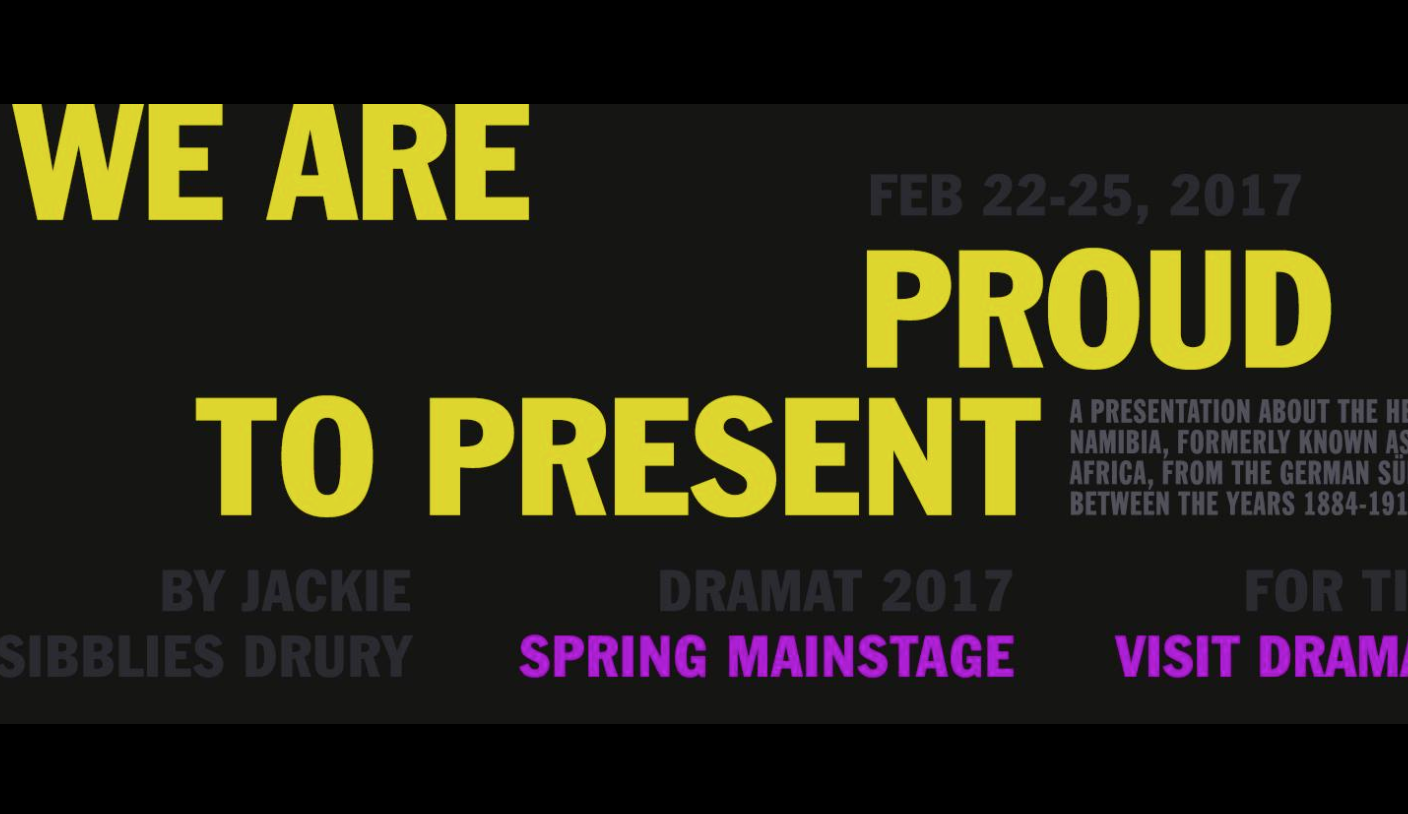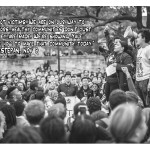The Dramat’s Spring Mainstage this year finds itself tackling a huge swath of contemporary issues within the span of Jackie Sibbles Drury’s piece We Are Proud to Present a Presentation About the Herero of Namibia, Formerly Known as Southwest Africa, From the German Sudwestafrika, Between the Years 1884-1915. Guest directed by Shariffa Ali, who is currently working at the Public Theater based in New York City, We Are Proud to Present executes its purpose efficiently: to create the space on stage for the audience reflect on their own place in history and history’s place in them.
Meant to shed light on the little-known genocide of the Herero tribe of Namibia, the play follows an actor ensemble made of six actors attempt to present this troubled and murky event. As the play goes on, however, much deeper themes found themselves explored, primarily through arguments.
The play begins with the ensemble’s literal presentation of the events of the Herero Genocide, contextualizing the follow events of the play. The presentation, and ensemble of actors, is led by Black Woman (Mikayla Harris) who goes on to introduce the other nondescript characters, such as White Man (Paul Gross) and Another Black Man (Nick Brooks), that make up what comes to be a rather troubled actor ensemble.
From here forward, the actors find themselves trying to create a cohesive narrative of their presentation, primarily through the soldiers’ letters home. With the reading of the first letter done by White Man, the actors other to the archetype of the white man, find themselves uncomfortable with the subject matter of the letters, given their rather noticeable lack of mention of the genocide. The sole white woman, and the sole named character, Sarah (Molly Montgomery) finds more qualms in the inability for her to find identity as a white woman through the letters. After some argument, especially about what exactly is “real” history or not, the ensemble decides to go onto to try to improvise the lived experience of the Herero.
Within the first bit of improvisation Another Black Man decides to take a rather primitivist improvisation of the Herero, something that quickly lends Black Man (Branson Rideaux) to ask for something more real. As the ensemble further tries to embark on the experience of the Herero people, further complexities rise in the group and their presentation. Quickly, the complexities of lived experience and identity come to focus as Another White Man (Isaac Scobey-Thal) pretends to be Black Woman’s long dead great grandmother. Tensions rise further as Black Man asserts that to be Black is to be African, is to know the lived experience of Africans.
Primarily guided through these arguments, the play finds highs and lows throughout the piece, allowing for heavy-handed questions to be asked to be followed by a less intense scene or argument. Throughout the piece, however, a certain nuance is taken in these issues as arguments take on an almost hyperrealistic sense of being. At times, the falling action can feel a bit drawn out, but some members of the audience may need more time to breathe than others.
As their arguments progress and evolve into more complex and deeper issues such as white guilt, the African diaspora, and an evocation of “Hands Up, Don’t Shoot,” the entire theater evolves with it. The characters find themselves more divided by race and gender, the actors themselves become more visceral in their emotions, and the office that takes up the stage becomes more deconstructed to reveal a desert behind it. Through this rampant deconstruction, the audience, too, is asked to evolve and reflect. While the piece becomes more exposed as it goes on, it provides the space for the actors to find their most powerful performances and for Ali’s humanist approach to directing to shine.
The arguments build into what can only be described as a fiery and explosive ending, fit for the buildup throughout the play. In the end, I found the play’s high point in its choreography, music, lighting, and raw emotion. When all is said and done, We Are Proud to Present finds itself to be a powerful mirror for the audience to tackle their place in history, representation, race, colonization, genocide, and much more.
Remaining performances of We Are Proud to Present are:
Thursday, February 23 at 8pm, for which tickets are pay-what-you-can;
Friday, February 24 at 8pm;
Saturday, February 25 at 2pm;
Saturday, February 25 at 8pm, with a post-show talkback with Professor Tavia N’yongo.


